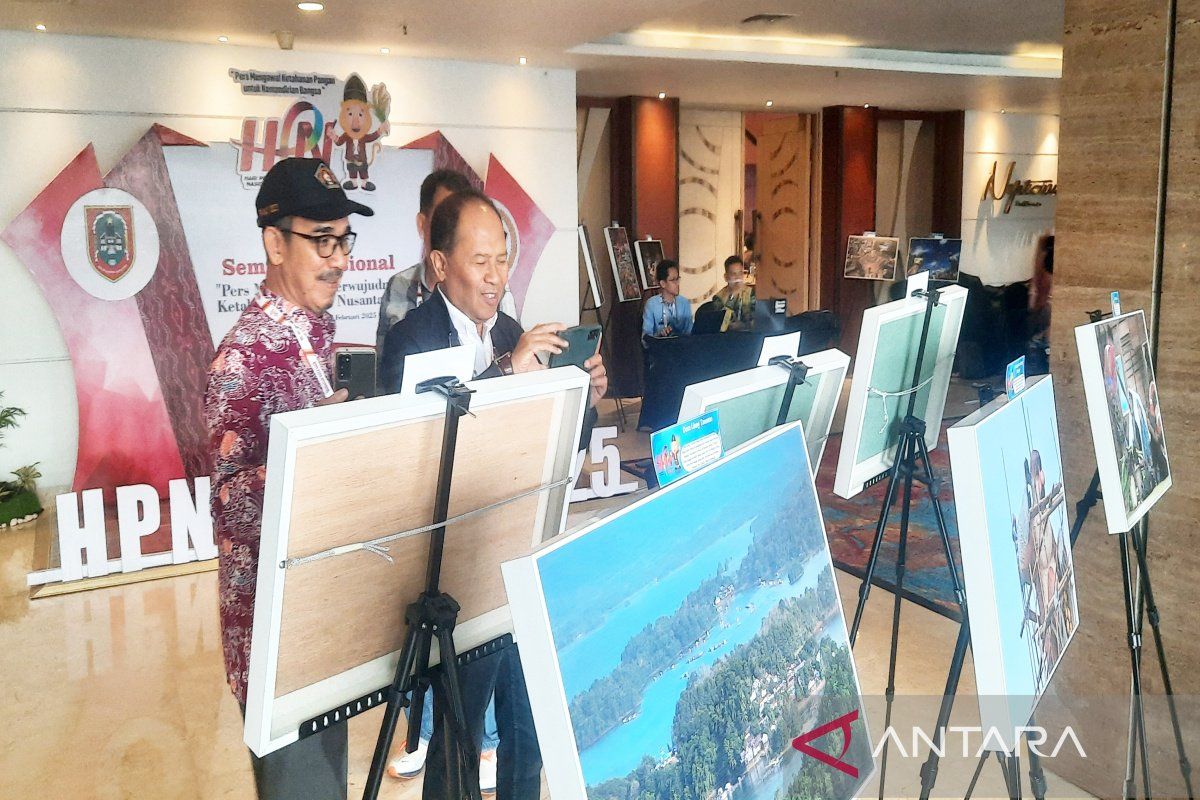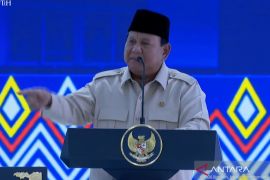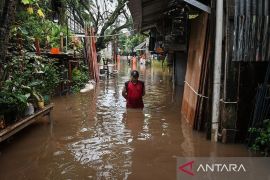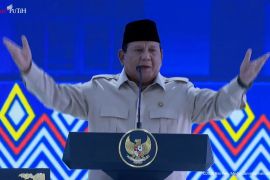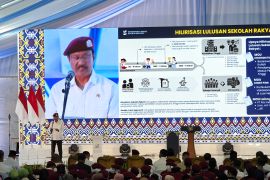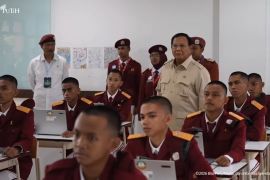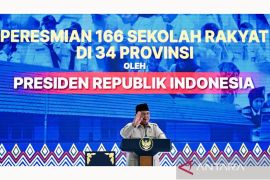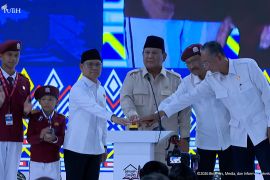The Press Law is regarded as a major milestone in the history of Indonesia's democratic journey.
The law, issued during the reformasi era, became a symbol of press freedom, liberating journalism from the constraints of power that limited its critical scope during the New Order period.
However, over time, this law has encountered new challenges that raise questions about its relevance and balance and whether it truly benefits press freedom and democratic life in Indonesia.
Efforts to encourage revision of the Press Law to enhance its relevance must be approached with caution to prevent the law revision from becoming a double-edged sword.
While improvements are indeed necessary, Lukas Luwarso, a former executive secretary of the Press Council, has expressed concern that politicians are dominating the push for revisions to the Press Law.
He stressed that the Press Council should lead the revision process to ensure that the revised Press Law protects press freedom.
Meanwhile, it is clear that the Press Law truly requires harmonization. One of its main strengths lies in the firm guarantee of press freedom. Article 4 states that press freedom is guaranteed as a fundamental right of citizens.
There is no longer a requirement for censorship or cases of media closures, marking a significant departure from the harsh realities faced by journalists in the past.
In this context, the Press Law provides crucial protection for freedom of expression and public access to information.
This legal framework allows the media to scrutinize government policies, expose scandals, and amplify marginalized voices.
However, behind this guarantee of freedom, other significant issues have emerged. The Press Law positions the Press Council as an independent body tasked with promoting press freedom and enhancing the quality and scope of national press activities.
The Press Council has the authority to resolve press disputes through mechanisms such as the right of reply and the right to correction.
While on paper, this appears to be a step forward in preventing the criminalization of journalists, not all parties adhere to this mechanism in practice.
The Alliance of Independent Journalists (AJI) documented 89 cases of attacks on journalists and media throughout 2023. This figure is the highest in a decade since 2014, serving as a warning for the future of press freedom in Indonesia.
There have also been cases where journalists face criminal charges based on laws outside the Press Law, such as defamation in the Criminal Code or the Electronic Information and Transactions (ITE) Law.
These cases highlight a continuing imbalance in the implementation of laws that can jeopardize press freedom.
Mella Ismelina Farma Rahayu, in her study on Press Freedom in the Context of the Criminal Code (2005), states that ideally, in a democratic country that guarantees press freedom and other basic freedoms, journalistic work should not result in imprisonment for journalists, but rather in proportionate fines based on the financial capacity of the media company involved.
Another issue that arises concerns the accountability and professionalism of the media itself.
The Press Law requires media companies to be legally established and encourages adherence to the Journalistic Code of Ethics.
However, the digital era has seen the emergence of numerous online media outlets that lack clear professional standards.
The phenomenon of clickbait, the dissemination of hoaxes, and sensational news have become part of everyday reality.
Unfortunately, the Press Law is insufficient to address these dynamics. There are no clear mechanisms to penalize media outlets that spread misinformation without compromising press freedom.
Digital Platforms
The Press Law also tends to focus on mainstream media while overlooking the developments in digital media and citizen journalism.
When this law was drafted, the internet and digital platforms were not yet integral to daily life in Indonesia.
Now, with the rise of social media and online platforms, the line between professional journalists and ordinary citizens has become blurred.
Anyone can be a source of information, but not everyone understands journalistic ethics, presenting new challenges not covered by the current Press Law.
Regarding protection for journalists, the Press Law provides a strong foundation, but it is not fully effective in safeguarding media workers from physical threats, intimidation, or violence while performing their duties.
Concerns also exist regarding media independence. The Press Law encourages press freedom from government intervention but does not adequately address the impact of capital owners on editorial independence.
Improvements
Moving forward, regulatory harmonization is needed between the Press Law and other laws, such as the Criminal Code and the ITE Law, to prevent journalists from being criminalized under vague provisions.
Dispute resolution in the Press should fully remain within the purview of the Press Council, without criminal interference, except in very specific cases, such as defamation or hate speech that clearly violates the law.
Furthermore, the Press Law should expand its scope to address the dynamics of digital media and citizen journalism.
This does not mean limiting freedom of expression on the internet but rather providing a clear ethical framework and promoting media literacy among the public.
Digital platforms, such as social media, should also be called upon to participate in monitoring and taking responsibility for the dissemination of false news without compromising the principles of information freedom.
In addition, protections for journalists must be strengthened with clearer and more effective mechanisms.
The state must ensure the safety of journalists as part of its commitment to press freedom.
The Press Law should be viewed not just as a legal tool but as a foundation for a healthy democratic life.
Without a strong press, society could lose one of the key instruments for overseeing power and advocating for truth.
Related news: Press freedom maintained in new government: Ministry of Communication
Related news: Press freedom protected in new publisher rights regulation: Official
Editor: Rahmad Nasution
Copyright © ANTARA 2025
